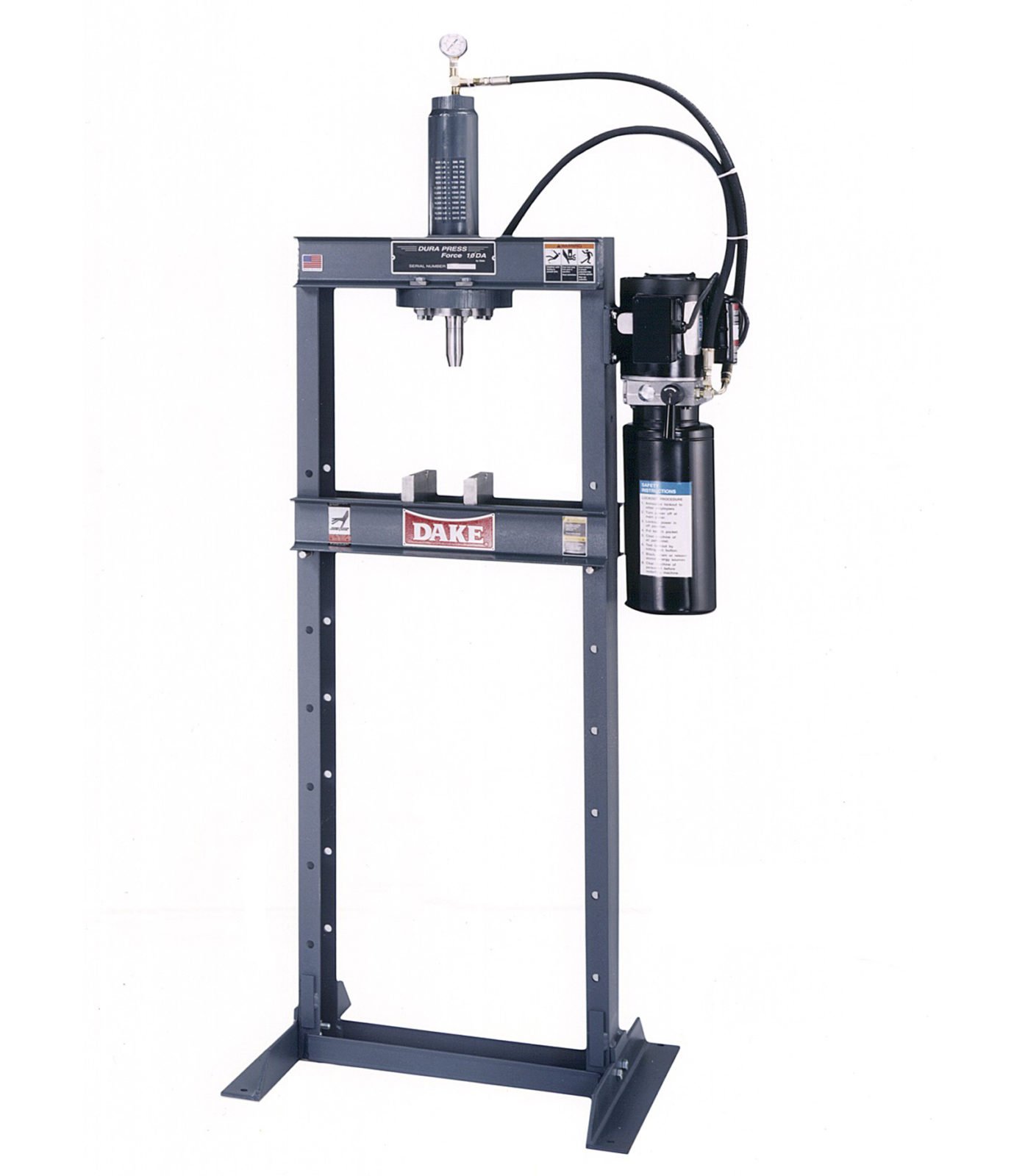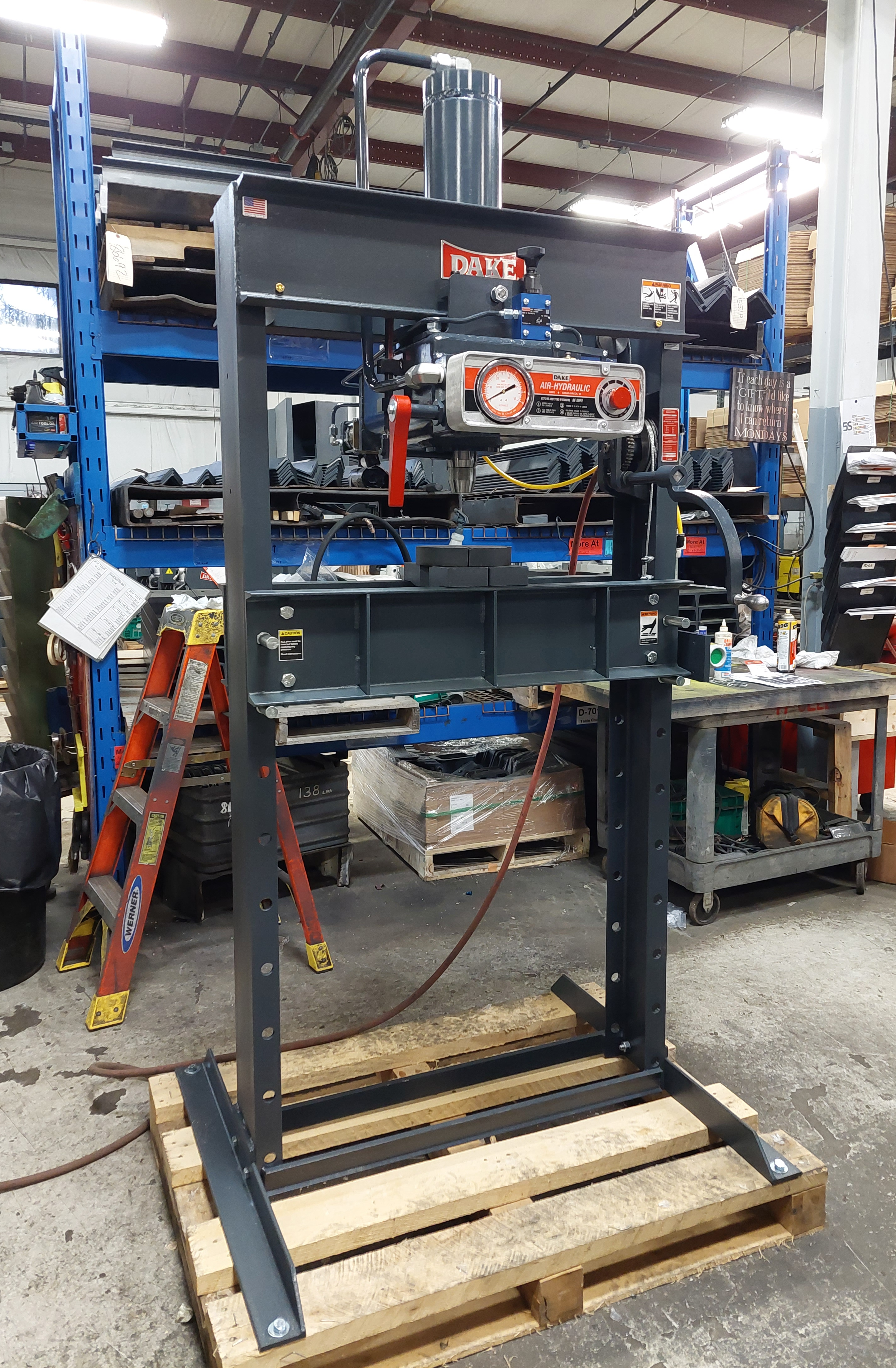If you own an auto repair business or just like to work on your own or friends’ cars in your garage, you might be surprised to know that a hydraulic press could make many of your tasks so much easier. You may even be more pleasantly surprised to discover these presses are affordable for small businesses and hobbyists.
Here are a few things you could do yourself instead of waiting for the local shop to work you in:
In the garage
Bent parts: Think of all the parts that could be straightened with a relatively small hydraulic press—steering linkage, shafts, control arms, or practically anything that’s bent is a prime candidate for the hydraulic press. Using support under a bent part and the proper fittings at the end of the press rod, you can spread out the pressure or concentrate it on one area.
Rusted parts: Oxidation breaks down metal parts and causes them to fuse. Freeing a rusted nut from a bolt is a prime example of what corrosion can do. The same thing can occur with other vehicle parts such as wheel hubs, exhaust systems, and anything else that can rust together. Spray the pieces with WD-40 first, and the hydraulic press will do the rest.
Used oil filters: Compressing used oil filters takes them down to 25% of their original size and squeezes out all the remaining oil. You can catch the oil and sell it and recycle the filters. A 10-ton capacity press will do the job while taking up 19” x 31” of garage floor space.
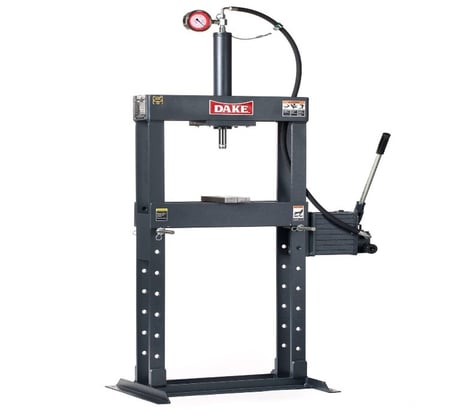
The Dake Model Force 10M
On the farm
Farmers use many large pieces of equipment: tractors, plows, combines, balers, planters, mowers, and sprayers. They all take abuse and need repairs. The hydraulic press is invaluable for repair tasks such as detaching rusted parts, straightening bent pieces, pressing out bearings, and crushing unwanted materials.
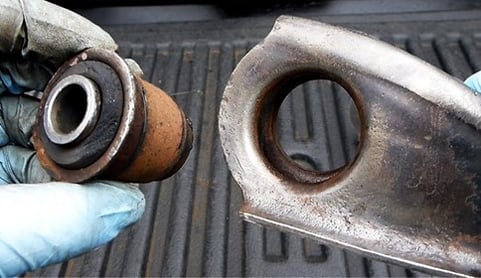
Rusted bushing component forced apart with a hydraulic press (Photo Credit: TOOLSid.com)
In commercial manufacturing
The versatility of a hydraulic press shows in numerous industries and applications.
- Ceramics: Many high-tech fields, such as semiconductors, rely exclusively on ceramics, and hydraulic presses compress the particulate matter that comprises ceramics. Ceramics are used in body armor, keeping soldiers and police safe. Hydraulic presses apply the pressure needed to compress ceramics into their intended form: cement, bricks, bathroom tiles, and other similar products.
- Electrical parts: A hydraulic press is used in the manufacturing of electrical components. Switches, housings, and thermostats are just a sampling of the electrical parts produced and assembled with the assistance of a hydraulic press.
- Car parts: Many automobile parts are formed using hydraulic presses. Some of the essential vehicle parts--clutches, gear housings, and bearing assemblies—are produced with the help of hydraulic presses. Simple components (windshield wiper blades) and parts that require precision (fuel injection sensors) are all manufactured using hydraulic presses.
- Appliances: Dishwashers, microwaves, refrigerators, washers, and dryers utilize hydraulic presses for shaping panels and also for other uses, including producing and assembling the appliances’ electrical parts.
- Aircraft: As with cars, planes are built using hydraulic presses. In addition to gear assemblies and windshield wiper blades, airplane body panels and wings are constructed using hydraulic presses.
- Military: Various branches of the military use hydraulic presses to load shells and similar ammunition-related jobs. You will find hydraulic presses aboard ships, on army bases, and inside air force repair shops. Other military applications include fuel cell compression and producing tracks and tires.
Choose your next hydraulic press from our lineup of quality models
Our heavy-duty hydraulic presses are ideal for manufacturers, fabricators, repair shops, farms, and hobbyists. They perform straightening, bending, forming, testing, quality control, maintenance, punching, assembly, and shearing work. Dake has been manufacturing hydraulic presses since the 1940s. You can trust their quality!
To find out more, fill out our contact form, call us at 1-800-937-3253, or email us.
-1.jpg?width=1200&height=525&name=DAKE003_%20Logos_Red%20(002)-1.jpg)
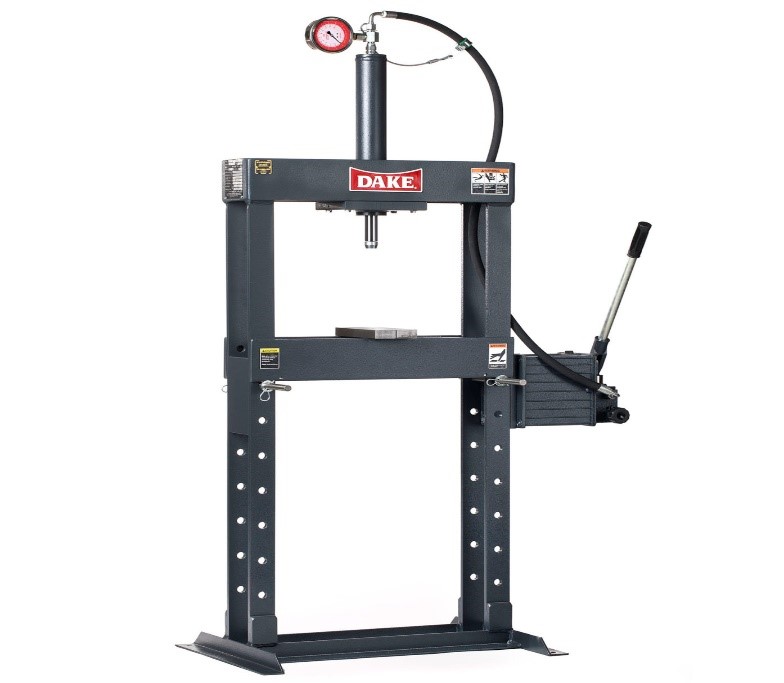
.jpg)
